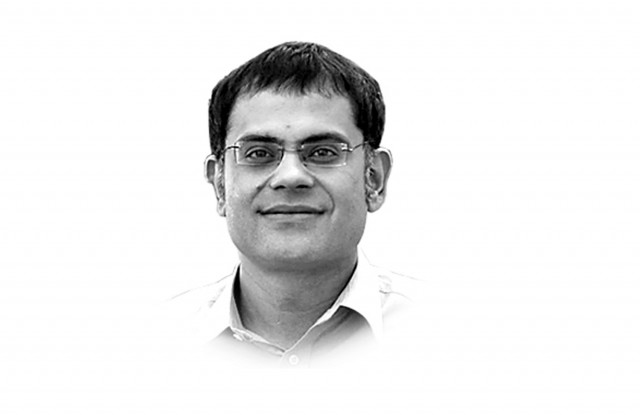Stop the genocide
After 5 years of inaction, the civilian government has woken up to the horrific Shia genocide taking place in Pakistan

The writer is Director, Policy & Programmes Jinnah Institute, Islamabad. The views expressed are his own
A children’s library in Islamabad boasts a violent madrassa and it is supported by various organs of the state, but when it comes to pandering to militant forces, everyone unites in their cowardice. Similarly, a water tanker meant to fill in the gap for crumbling service delivery structures, is used as a vehicle to massacre an endangered minority.
Discourses to obfuscate the reality are found aplenty. It is said that foreign agencies want to destabilise Pakistan, or that Iran is fighting a proxy battle. Others say that Pakistan’s joining the US in the war of terror that has landed us into an abysmal state of violence and fear. Despite such conspiracy theories, should we not ask ourselves why we have allowed groups such as the SSP, LeJ and their new avatar, the ASWJ to operate with near complete abandon? Is it not a fact that the Supreme Court of Pakistan freed the head of the LeJ? Is it not a fact that the Punjab government was providing a stipend to the family of an accused? Is it not a fact that all witnesses against Malik Ishaq have been killed with police and intelligence agencies watching, in complicit silence? Is it not a fact that we nurture proxies to pursue our regional ambitions of controlling Afghanistan and liberating Kashmir?
What is even more worrying is how notionally banned sectarian outfits have entered into official partnerships with Tehreek-e-Taliban Pakistan and al Qaeda. There is incontrovertible evidence to suggest that the Afghan and Pakistan Taliban are branches of the same movement, working under the broad banner of al Qaeda’s worldview. With thousands of soldiers lost in a war against the Taliban and al Qaeda, what prevents it from taking a clear policy position on these issues? How can we even become a regional power if we are not able to protect our citizens, create a secure environment for businesses to operate and ensure that basic rights of citizens are guaranteed?
Perhaps, there are no simple answers. The civil-military imbalance in Pakistan means that policy and strategic decision making is deeply split. There is a constitutionally legitimate government and an opposition, but they have little control over foreign and security policies. The military continues to pursue its ‘strategic’ goals, apparently with little input from society at large. If the top military leadership has identified the enemy within, then why is the all powerful intelligence apparatus not tracking down the activities, linkages and plans of the militant groups, purportedly in alliance with the “enemy”?
I can understand the anguish of the Hazara community in seeking protection from the army and wanting the city of Quetta to be controlled by them. In the absence of civilian law enforcement, what else can a group of people ask for? Army rule can only be a short-term solution. Unfortunately, it has never solved anything for Pakistan, except causing dissension and every military rule has left a bigger mess for ineffectual civilians to clean up.
In the present scenario, the parliamentary committees must summon the intelligence agencies and question their (lack of) effectiveness in preventing Shia massacres across the country. An operation that has been announced in Quetta must be taken to its logical conclusion. It cannot be limited to Balochistan, because the bases of sectarian outfits are located in Punjab. In the larger national interest, the PML-N will have to think beyond its forthcoming electoral gains and sacrifice a number of seats to enable an effective crackdown against the militants.
The PPP must not be on the back foot, for it has everything to lose if it abandons Shias, minorities and its other supporters. It must enter into an immediate dialogue with the Punjab government and the PML-N to put into place a medium-term plan for tackling sectarian killings. The civilians can no longer let the mayhem continue. By acting as silent spectators of death sport, they are going to ruin their long-term prospects of legitimacy. And if the civilians think they cannot control the khakis, then it is time for some honest confessions and they should take the people into confidence about how they are not in charge.
Published in The Express Tribune, February 21st, 2013.



















COMMENTS
Comments are moderated and generally will be posted if they are on-topic and not abusive.
For more information, please see our Comments FAQ